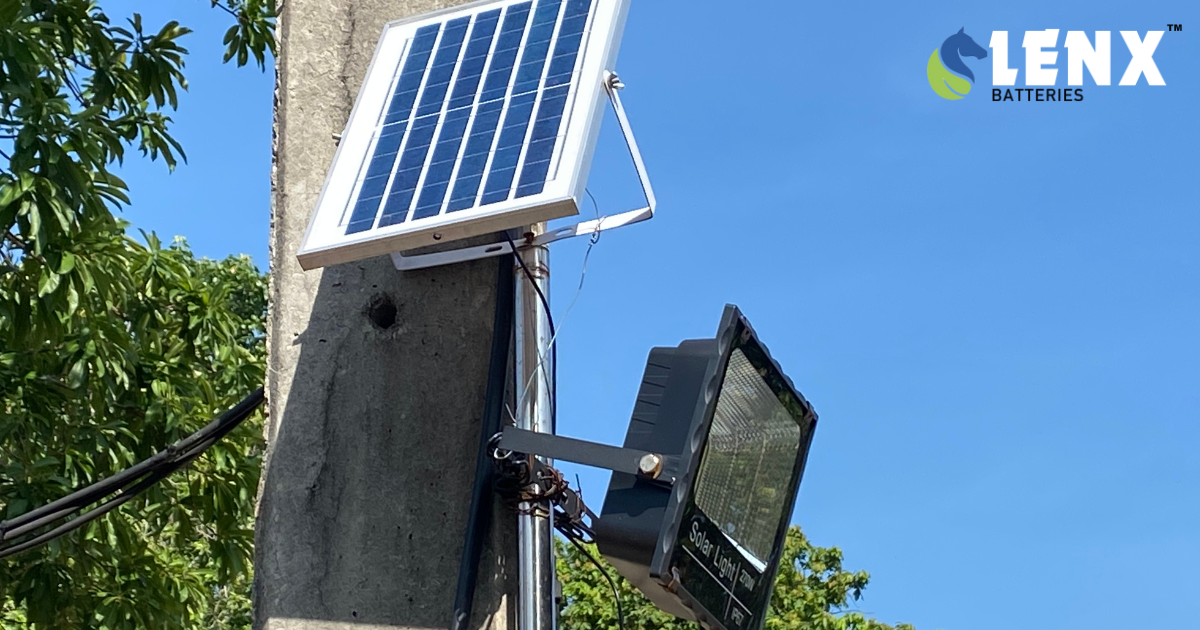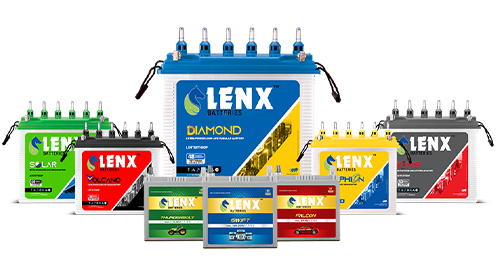As the world shifts toward renewable energy sources, solar power stands out as a leading alternative. At the heart of solar power technology are photovoltaic (PV) cells, the essential components of solar panels. Understanding how these cells work is crucial for anyone interested in harnessing solar energy for their home or business. As a solar battery manufacturer, Lenx Battery aims to shed light on photovoltaic cells and the technology behind solar panels.
What Are Photovoltaic Cells?
Photovoltaic cells, commonly known as solar cells, are semiconductor devices that convert sunlight directly into electricity. They are made from materials like silicon, which possess the ability to absorb photons from sunlight. When these photons hit the solar cell, they excite the electrons in the silicon, creating an electric current. This process is known as the photovoltaic effect.
How Do Photovoltaic Cells Work?
The operation of photovoltaic cells can be broken down into several key steps:
1. Absorption of Sunlight: When sunlight strikes a photovoltaic cell, the energy from the light is absorbed by the silicon material.This energy energizes electrons, dislodging them from their atoms.
2. Generation of Electron-Hole Pairs: The excitement of electrons creates what is known as electron-hole pairs. For every electron that is freed, a corresponding “hole” is left behind. The presence of these holes is crucial for creating an electric current.
3. Creation of an Electric Field: To harness the flow of electrons, photovoltaic cells are constructed with a positive layer (p-type) and a negative layer (n-type) of silicon. The interaction between these two layers creates an electric field that directs the free electrons toward the surface of the cell.
4. Flow of Electric Current: Once the electrons are directed by the electric field, they flow through the external circuit, generating an electric current. This current can then be harnessed to power electrical devices, charge batteries, or feed into the electrical grid.
5. Inverter Conversion: Most solar panels produce direct current (DC) electricity, which is not suitable for use in most home appliances. An inverter is used to convert this DC electricity into alternating current (AC), making it compatible with the power grid and household electrical systems.
The Importance of Solar Panels
Solar panels, which consist of multiple photovoltaic cells, are essential for harnessing solar energy efficiently. They can be installed on rooftops or ground-mounted systems, allowing homeowners and businesses to generate their own electricity. Here are some benefits of solar panels:
– Renewable Energy Source: Solar energy is abundant and renewable, reducing reliance on fossil fuels and contributing to a cleaner environment.
– Cost Savings: Cost savings: By producing their own electricity, users can greatly lower their energy expenses. In some cases, excess energy can be sold back to the grid, providing an additional income stream.
– Energy Independence: Solar panels provide an opportunity for individuals and businesses to become less dependent on traditional energy sources, enhancing energy security.
The Role of Solar Batteries
To maximize the benefits of solar energy, many homeowners are turning to solar battery systems. As a solar battery manufacturer, Lenx Battery offers solutions that store excess energy generated during the day for use at night or during cloudy days. This capability enhances energy independence and ensures that users have a reliable power source, even when the sun isn’t shining.
Common Misconceptions About Photovoltaic Cells
Despite their growing popularity, there are several misconceptions about photovoltaic cells and solar panels:
– Only Work in Direct Sunlight: While solar panels perform best in direct sunlight, they can still generate electricity on cloudy days or in shaded areas, albeit at reduced efficiency.
– High Maintenance Costs: Solar panels require minimal maintenance. Regular cleaning and occasional inspections are typically enough to ensure they operate at peak performance.
– Expensive Installation: While the initial investment in solar panels can be significant, government incentives and the long-term savings on energy bills often make them a cost-effective solution in the long run.
Conclusion
Photovoltaic cells play a critical role in transforming sunlight into usable electricity, making solar panels an essential technology for harnessing renewable energy. Understanding how these cells work can help homeowners and businesses make informed decisions about investing in solar energy systems. As a solar battery manufacturer, Lenx Battery is committed to supporting the transition to sustainable energy through innovative solar solutions.
Ready to take advantage of solar energy for your home or business? Contact Lenx Battery today to learn more about our high-quality solar batteries and how they can enhance your solar panel system. Don’t miss out on the opportunity to harness the power of the sun—reach out to us now!


